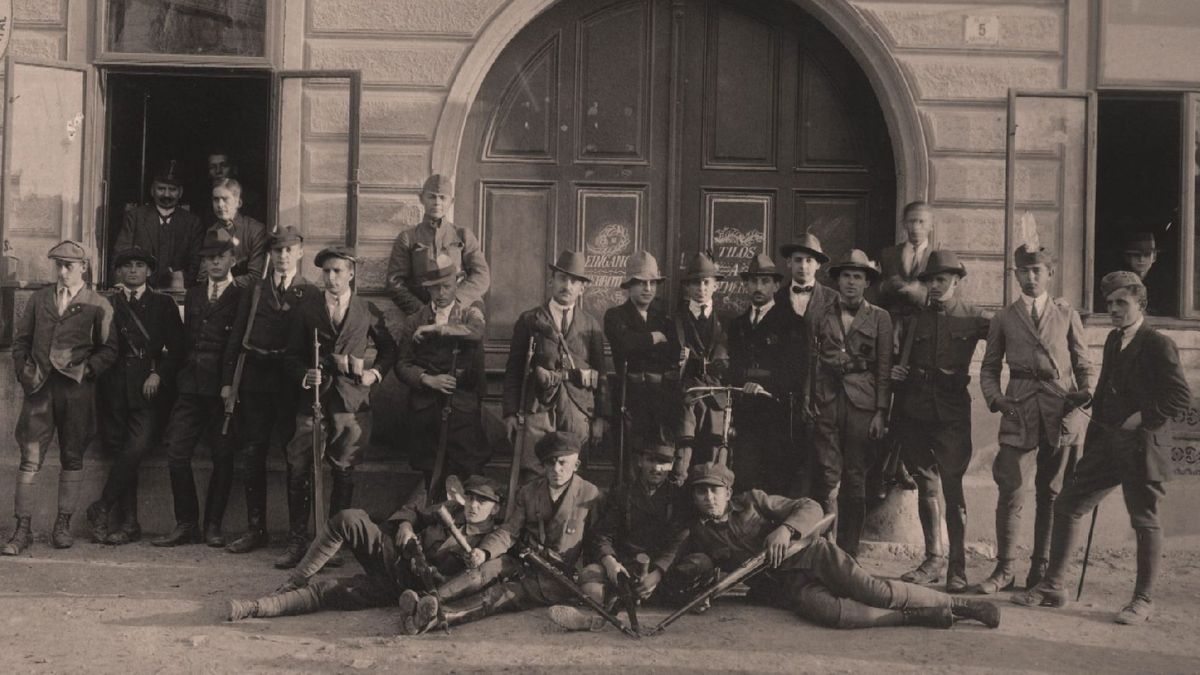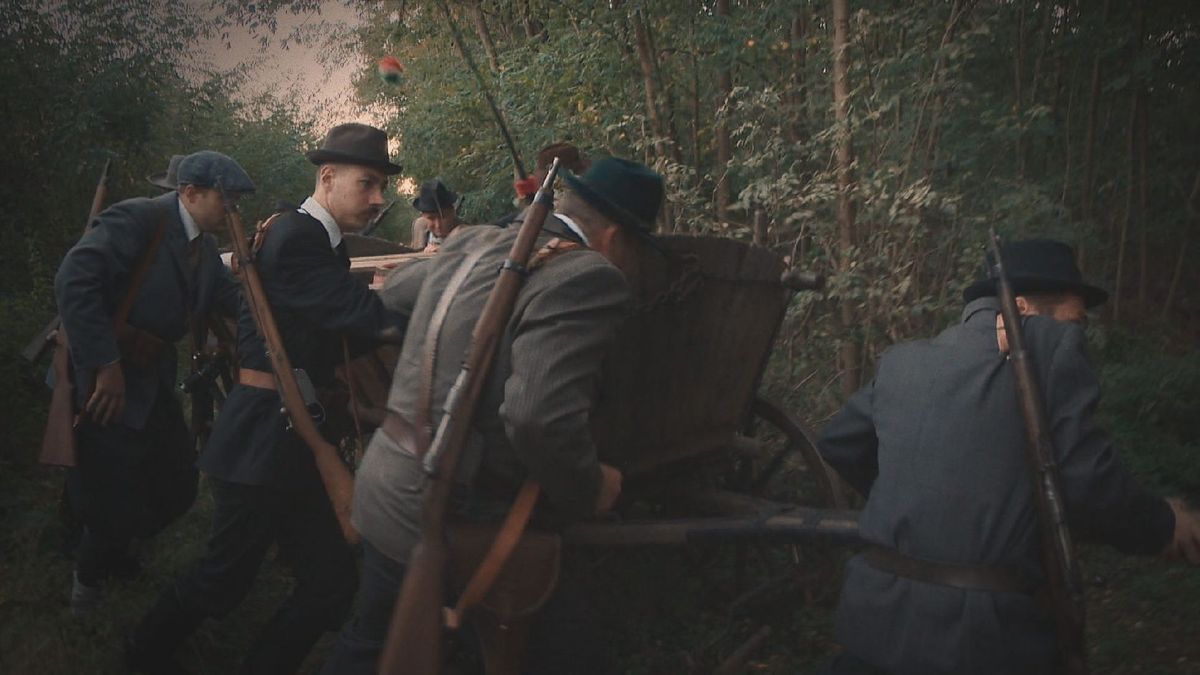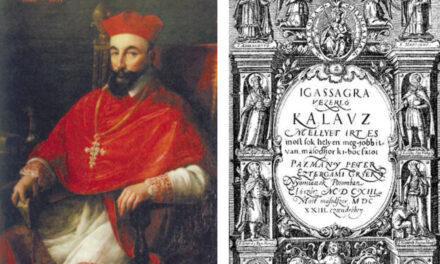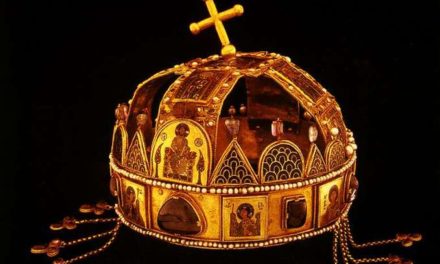A make-up film directed by Béla Harcsa was made, which shows the struggle of the Raging Guard for Western Hungary. The premiere of the fictional documentary Őrtüzek nyagaton took place at the Uránia National Film Theater, after which the host of the evening, Anett Szabó, talked with the director, as well as military historian Zoltán Babucs, a staff member of the Hungarian Research Institute, historian József Botlik, writer-publicist László Domonkos and Róbert Hetzmann, the With the president of Patriots.
The Ragged Guard was formed in April 1919, mostly from soldiers returning home after the First World War, which, with the help of the population, exploded the uprising in Western Hungary.
It is thanks to them that the referendum could take place, as a result of which Sopron, the most loyal city, and many surrounding settlements could remain part of our country. However, the fate of the participants was persecution and death, their names were smeared, and efforts were made to erase them from the nation's memory.
The opening frames immediately highlight all of this. Mihály Francia Kiss took place on August 13, 1957 - as László Domonkos puts it in the film: perhaps not entirely by chance - on the anniversary of the laying down of arms in Léger, and with a particularly sadistic technique, a method that prolongs suffering. At the final resting place of the guard commander, at plot 301 of the Rákoskesztúr cemetery, the writer-publicist already talks about how the name of Mihály Francia Kiss was initially on the memorial wall erected in the cemetery, but it later disappeared from there.
The public not only knows very little about the method of execution, but also about the identity of the hanged hero and even about the activities of the Rag Guard. According to László Domonkos, certain parts of Hungarian history have been misinterpreted or ignored, which is why countless white spots have appeared on the national memory.
This also includes the story of the Ragged Guard, which Béla Harcsa . However, we could continue the line for a long time. In those times, the Károly Kratochvil also played a similar role in the resistance, and if the opportunity had been offered, like Sopron, the most loyal cities today would be Cluj, Nagyvárad, Szabadka and the others, since there was resistance in many places - informed the writer publicist who, as the film's traveling reporter, visits the various locations of the uprising in Western Hungary and addresses the local and national experts featured in the film, as well as descendants, including Georgina Francia-Kis , who told us that even in high school she was subjected to atrocities because of her name.

Source: Media click
Between the two world wars, Hungarian historiography called the members of the guerilla team patriots and referred to their activities as freedom fighters - we learned from József Botlik , who also revealed that in the communist times after 1945, they adopted the "bandit" classification used by the Austrians at home as well.
Even in the 1980s, studies about the uprising were published in which they wrote about bandits, said the historian, who called the Guardsmen patriots for the first time in a long time in his book The Fate of Western Hungary 1918–1921, published in 2008.
The toolkit of culture serves only to bring into the national public thinking and memory those heroes who took their own destiny into their own hands by choosing the act of patriotism - pointed out Róbert Hetzmann . As he said, the information that is available thanks to the work of the authors who were also present at the discussion, as well as the experts speaking in the film, is enough for the various art forms to draw inspiration from them. However, Hungarian cultural policy must decide whether to accept this kind of identification with active patriotism and national defense.

The fictional elements bring the events even closer to the viewer.
Actors Bálint Ferencz and Péter Bródy in the roles of Mihály Francia Kiss and Iván Héjjas Among others, they were the national heroes who were able to act bravely despite the unfathomable war losses and the mutilation of the country. Béla Harcsa commemorates them in his film.
As he said, in connection with the centenary of Trianon, he wanted to draw attention not to the trauma and unimaginable pain, but to one of our most beautiful and successful freedom fights and to the people who fought for the country's interests without special authority and even died for it. The film commemorates László Baracsi , who lost his life during the fighting.
They were not supporters of apathy, of hiding, but were ready to give their lives for the country at any moment - explained the director, and then he quoted Governor Miklós Horthy, who in his reminiscences calls the significance of the Sopron referendum beyond himself, as it awakened the hope of a peaceful revision. and "the first gap opened in the prison walls around Hungary".
The film also explores the reasons for the formation of the self-organized guerrilla group, which are also introduced by the experts.
During the round table discussion following the presentation Zoltán Babucs reminded us that after World War I, one of the darkest periods in Hungarian history occurred, when Mihály Károlyi came to power with his government, which actually wrested the weapons from the hands of the Hungarian soldiers.
Artillery Colonel Béla Linder, the Minister of War of the Károlyi government, shouted on the steps of the Parliament that he never wanted to see a soldier again - recalled the military historian, who believes that this government made many mistakes, but the biggest one was that at the decisive moment , when we still had soldiers and weapons, he didn't even try to defend the borders of Szentistvan. Róbert Hetzmann, what Mihály Károlyi did amounted to an act of treason.
There was a critical historical moment when it was impossible to do anything but defend the country, and the opposite happened - said the President of the Patriots, who said that thirty years after the regime change, it is time to start talking about our heroes who tried to protect the country through self-organization , with their own means instead of the then illegitimate government.
more details about the film HERE.
Source: Magyar Nemzet/Diána Zana
Featured image: Médiaklikk.hu











